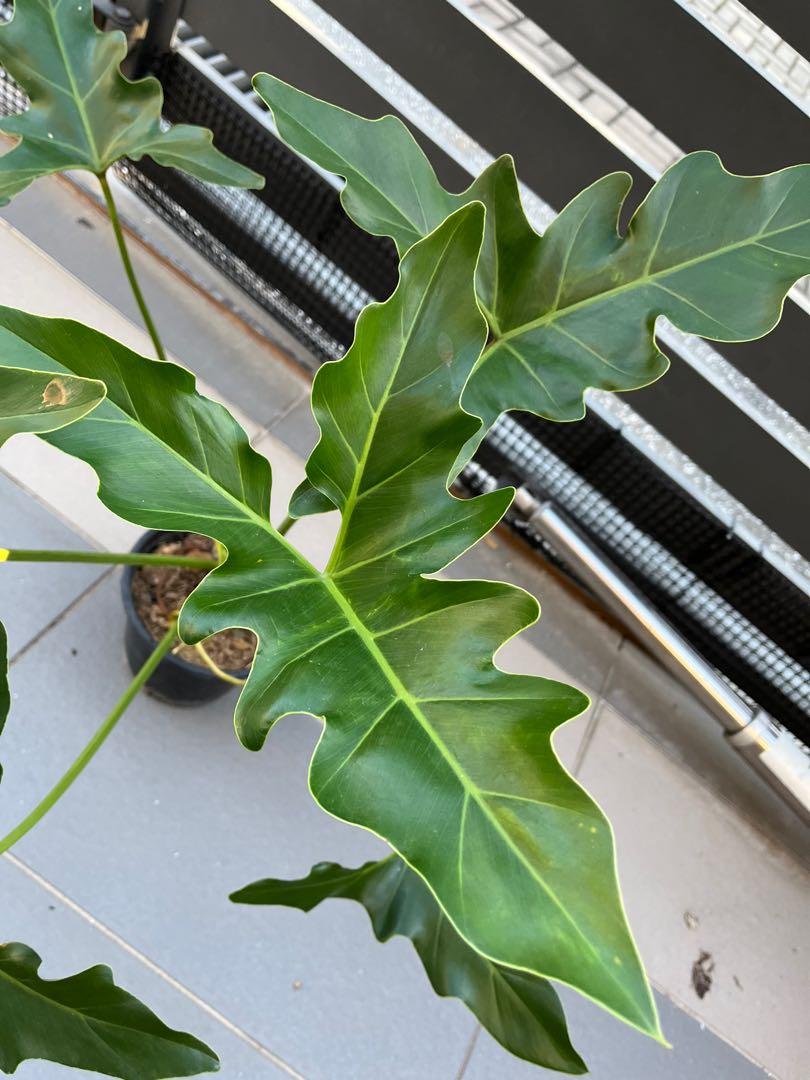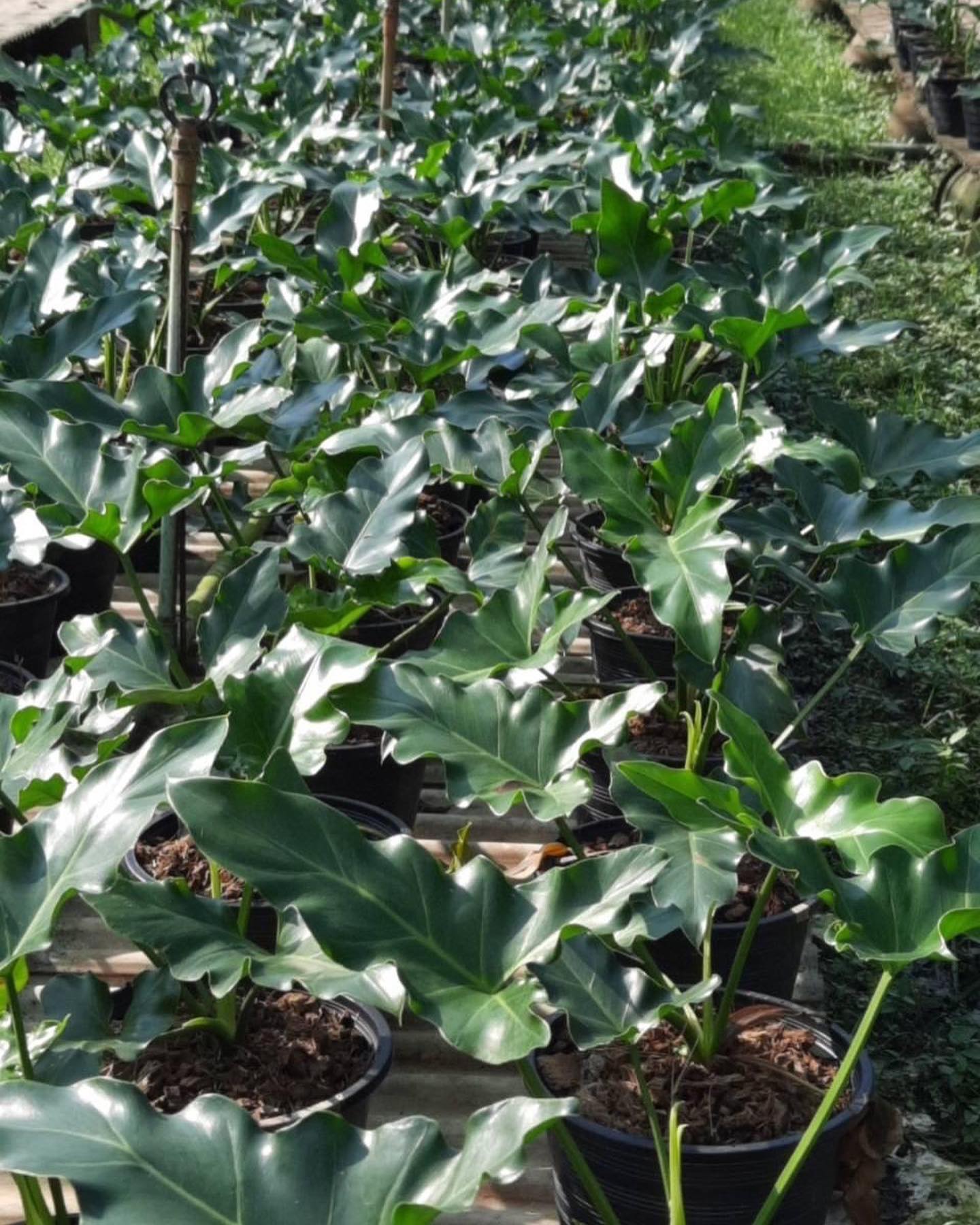Philodendron Evansii: The Ultimate Guide
Introduction
The Philodendron Evansii is a popular indoor plant known for its velvety, heart-shaped leaves and vining growth habit. Native to the tropical rainforests of Brazil, this philodendron species is loved for its lush, cascading foliage that can grow quite large and add a dramatic, tropical feel to indoor spaces.
While P. Evansii is easy to care for, there are some important growing conditions and care tips to be aware of if you want your plant to reach its full potential. Read on to discover 5 key secrets that will help ensure your Philodendron Evansii grows thick, vibrant leaves and becomes the showstopper plant in your home.

Characteristics
Appearance
- Heart-shaped leaves up to 12 inches long. Young leaves have bronze tint before maturing to deep green.
- Velvety texture on both sides of leaves.
- Trailing or vining growth. Can reach 4-6 feet long.
- Aerial roots along the stems to grab onto supports.
- Plant has no true stem. Leaves and aerial roots emerge directly from the soil.
Natural Habitat
- Native to tropical rainforests of Brazil.
- Grows as an epiphyte clinging to trees and rocks.
- Thrives in warm, very humid environments with filtered light.
Why Choose Philodendron Evansii
Low Maintenance
- Does not require frequent fertilizing or repotting.
- Tolerates missed waterings quite well.
- Not bothered by pests.
Cleans Air
- Removes toxins like formaldehyde and benzene from indoor air.
- Great for improving air quality in offices and homes.
Trailing Beauty
- Cascading habit makes a stunning statement in hanging baskets or on shelving.
- Adds movement and drama to decor.
- Looks gorgeous in plant walls.

"Discover the lush beauty of the Philodendron Evansii! Click now to bring this magnificent plant into your home and elevate your space with its vibrant greenery."
Caring For Your Philodendron Evansii
Light
- Thrives in bright, indirect light. Some morning sun okay.
- Low light will result in sparse, slow growth.
- Direct sun will scorch leaves.
Water
- Allow soil to partly dry out between waterings.
- Water less in winter, more in summer.
- Mist leaves regularly to increase humidity.
- For a more detailed guide on the specific light and watering requirements, see our extensive care instructions
Temperature
- Prefers temperatures between 65-80°F.
- Can tolerate cooler temps down to 50°F.
- Avoid cold drafts.
Humidity
- Likes 40-60% humidity.
- Place on pebble tray or use humidifier to increase moisture in air.
Fertilizer
- Fertilize monthly in spring and summer with balanced liquid fertilizer.
- Dilute to half-strength.
- No need to fertilize in fall and winter.
Support
- Use moss poles, trellises or similar structures for support.
- Gently tie stems in place as plant grows.
- Allows leaves to grow upright rather than drooping.

Common Issues and Solutions
Yellowing Leaves
Causes: Too much sun, overwatering, dry air.
Solutions: Move to brighter indirect light. Allow soil to partly dry out between waterings. Use pebble tray or humidifier to increase humidity.
Sparse Growth
Causes: Insufficient light, underwatering.
Solutions: Provide brighter light. Water more frequently.
Wilting
Causes: Underwatering, drought stress.
Solutions: Check soil moisture and water thoroughly. Improve drainage if soil stays soggy.
Leaf Drop
Causes: Changes in temperature or light, overwatering.
Solutions: Avoid direct sun. Keep temps steady between 65-80°F. Water less in winter.
Pests
Causes: Mealybugs, aphids, scale.
Solutions: Treat with neem oil or insecticidal soap. Isolate plant. Remove heavily infested leaves. Improve air circulation.
Conclusion
With its trailing habit, lush foliage, and low maintenance nature, the Philodendron Evansii makes a fantastic indoor plant. Follow these secrets of proper lighting, humidity, watering, and care to keep your P. Evansii healthy and help it thrive indoors. Pay attention to its growing needs and troubleshoot issues promptly to enjoy this Brazilian beauty for many years.
FAQs
How do I prune my Philodendron Evansii?
- Prune off any dead, damaged, or yellow leaves at the base of the stem using clean shears.
- Prune to control size and encourage bushier growth.
- Pruning also removes unattractive trailing stems.
How often should I repot my Philodendron Evansii?
- Repot every 2-3 years in spring when potting mix breaks down or roots fill the pot.
- Move to a container only 1-2 inches larger to avoid overpotting.
- Use a well-draining potting mix amended with perlite or orchid bark.
What type of support does this philodendron need?
- Use moss poles, coconut coir totems, trellises, or other structures to support vining stems.
- The support should be sturdy but also allow roots to attach.
- Slowly train stems to climb supports as they elongate.
- For guidance on how to support and propagate your Philodendron effectively, refer to the techniques detailed
Is Philodendron Evansii toxic?
Yes, this plant is toxic if ingested and can cause swelling of the tongue, mouth, and throat if eaten. Keep away from pets and children.
https://bit.ly/48pFrUw
Nhận xét
Đăng nhận xét